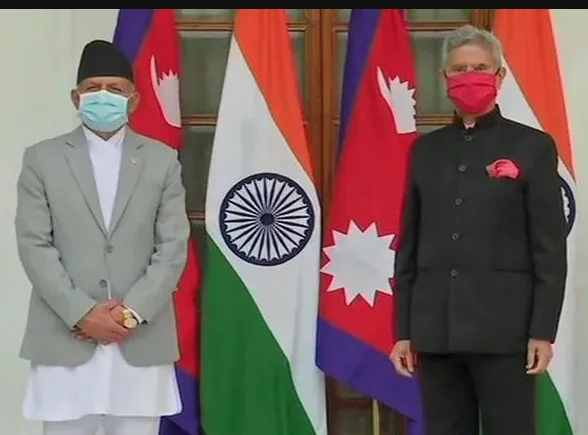Building trust Gyawali’s visit keeps that conversation going, though it is clear that the trust deficit between the two countries continues.
Last week’s visit by Nepal foreign minister Pradeep Gyawali was significant for the reason that it was the first official high-level political sojourn from Nepal after relations soured last year when India built a road to Lipulekh Pass and Kathmandu claimed the pass as well parts of the area through which the road had been built, underlining this claim with a new map of its boundary with India. Since then, India’s foreign secretary, its Army chief and the head of the Research and Analysis Wing, have been to and welcomed by Kathmandu at different times, signalling that a conversation between the two countries is important to both and must continue. Gyawali’s visit keeps that conversation going, though it is clear that the trust deficit between the two countries continues.
Ahead of his foreign minister’s visit, Prime Minister Khadga Prasad Sharma Oli declared that his government was determined to take the 370 sq km of land in the Kalapani-Limpiadhura-Lipulekh area through dialogue, a sentiment reiterated by Gyawali in Delhi. What this appears to convey is that there can be no fait accompli in this matter. The boundary row, with its domestic political ramifications for the Oli government, and security considerations for India — the area is at an India-China-Nepal trijunction — cannot be resolved overnight. What it needs, as Gyawali rightly said, is a building of mutual trust. This can come only with dialogue. His assurance that Nepal’s soil cannot be used against another country is timely.
Gyawali arrived in Delhi at a curious time in Nepal’s politics, currently roiled by Oli’s decision to dissolve the House of Representatives, and call for fresh elections in April. The ruling Nepal Communist Party (NCP) itself is divided, with former Prime Minister and NCP leader Pushpa Kamal Dahal “Prachanda” opposing Oli’s decision. The matter is before the Supreme Court. Prachanda has accused Delhi of political motives in welcoming Gyawali at this point, but it is really China that has openly waded into Nepal’s internal affairs, even sending a high-level delegation of the Communist Party of China to resolve the internal feuding in the NCP and making efforts toward a patch up, as it had done last May. Delhi must continue to keep distance as the politics plays out. Meanwhile, it can script a positive India-Nepal story by making good on External Affairs Minister S Jaishankar’s “iron clad” commitment that India will soon deliver anti-COVID19 vaccines to Nepal. That will do much more for relations between the two countries at this time than anything else.





